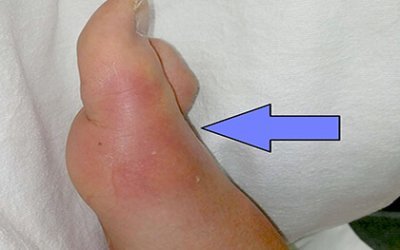Know Simple and Effective Remedies for Joint Pain & Arthritis

Explore this comprehensive blog post on arthritis remedies, where we provide insightful information on this prevalent condition. Arthritis, characterized by joint inflammation, comes in various forms such as osteoarthritis, rheumatoid arthritis, and gout. Learn about evidence-based remedies, spanning dietary modifications, targeted exercises, and lifestyle adjustments, all grounded in scientific research. Empower yourself with knowledge on managing specific types of arthritis symptoms and enhancing overall joint health. Take proactive steps towards a pain-free life by understanding and implementing these evidence-supported remedies.
Possible Causes:
Osteoarthritis:
Aging
Joint overuse or injury
Obesity
Genetic factors
Rheumatoid Arthritis:
Autoimmune response
Genetic predisposition
Environmental factors
Gout:
High levels of uric acid in the blood
Diet rich in purines (red meat, organ meats, certain seafood)
Obesity
Certain medical conditions and medications
Psoriatic Arthritis:
Psoriasis (skin condition)
Genetic factors
Immune system dysfunction
Ankylosing Spondylitis:
Genetic predisposition (HLA-B27 gene)
Autoimmune response
Environmental factors
Understanding Symptoms
Osteoarthritis:
- Joint pain and stiffness, Reduced flexibility, Grating sensations during movement
Rheumatoid Arthritis:
Joint pain, swelling, and warmth, Morning stiffness, Fatigue and general weakness
Gout:
Sudden, intense joint pain (usually in the big toe), Swelling and redness, Limited range of motion
Psoriatic Arthritis:
Joint pain and swelling, Skin changes (red patches with silvery scales), Nail changes (pitting or separation from the nail bed)
Ankylosing Spondylitis:
Lower back pain and stiffness, Reduced flexibility in the spine, Fatigue and discomfort in the hips and shoulders

Management Strategies:
Medical Treatment:
Take prescribed medications like pain relievers and anti-inflammatory drugs.
Follow specific treatments, such as disease-modifying drugs or biologics if recommended.
Physical Activity:
Engage in regular, gentle exercises like walking or swimming to improve joint function.
Work with a physical therapist for targeted exercises.
Weight Management:
Maintain a healthy weight to reduce stress on joints.
Joint Protection:
Use assistive devices and make adjustments to daily activities to protect joints.
Balanced Diet:
Eat a healthy, anti-inflammatory diet with foods like fish and flaxseed.
Rest and Sleep:
Ensure adequate rest and quality sleep for healing and pain management.
Stress Management:
Practice stress-reducing techniques like meditation and deep breathing.
Medication Adherence:
Take prescribed medications as directed and attend regular check-ups.
Joint Surgery:
Consider joint replacement surgery if conservative measures are insufficient.
Exploring Herbal Remedies
As we know a healthy lifestyle can help you prevent any kind of ailment. Our remedies are mostly based on pure diet control, The methods to use the remedies are as follows:
Turmeric (Osteoarthritis):
Method: Incorporate turmeric into your diet by adding it to curries, soups, or smoothies. You can also consider turmeric supplements after consulting with your healthcare provider.
Ginger (Osteoarthritis):
Method: Make ginger tea by steeping fresh ginger slices in hot water. Include ginger in your cooking or take ginger supplements with guidance from a healthcare professional.
Castor (Rheumatoid Arthritis):
Method: Cut the leaves into thin shreds. Fry them in hot castor oil. Apply on the affected parts, when it becomes bearably hot.
Carrot (Rheumatoid Arthritis):
Method: Simply the leaves should be cooked and included in the daily diet.
Celery (Gout):
Method: Celery is useful in treating arthritis due to its high sodium content. Its organic sodium tends to prevent and relieve the arthritic joint deposits by keeping lime and magnesia in a solution form. For optimum results, it should be taken in the form of freshly extracted juice, using its leaves and the stem. A fluid extract of the seeds is more powerful than the raw vegetable.
Moringa (Gout):
Method: Apply the Moringa seed oil on the affected area after slightly warming it.
Aloe Vera (Psoriatic Arthritis):
Method: Aloe vera gel, derived from the succulent plant’s leaves, is known for its anti-inflammatory and soothing properties. When applied topically to affected skin or joints in psoriatic arthritis, it may help alleviate redness, itching, and inflammation associated with psoriasis. Ensure the gel is pure, without added chemicals, and perform a patch test to check for any adverse reactions.
Licorice Root (Psoriatic Arthritis):
Method: Licorice root has been traditionally used for its anti-inflammatory and immune-modulating properties. Brewing licorice root tea or taking licorice root supplements may offer relief from symptoms of psoriatic arthritis. However, caution is advised due to potential side effects, especially for individuals with hypertension or other health conditions. Always follow recommended dosages and consult with a healthcare professional.
White Willow Bark (Ankylosing Spondylitis):
Method: White willow bark contains salicin, a natural compound similar to aspirin, with anti-inflammatory and analgesic properties. Brewing white willow bark with tea or taking it in supplement form may help alleviate pain and inflammation associated with ankylosing spondylitis. However, it’s crucial to consult with a healthcare provider.
Thunder God Vine (Ankylosing Spondylitis):
Method: Thunder God Vine (Tripterygium wilfordii) has been studied for its potential immunosuppressive and anti-inflammatory effects. Supplements derived from the plant may be considered for managing symptoms of ankylosing spondylitis. However, this remedy should only be used under the guidance of a healthcare professional due to its potent nature and potential side effects.
Remember to inform your healthcare provider about any herbal remedies you plan to use, as they can interact with medications or have contraindications based on your health condition. Always prioritize professional medical advice.
References
Shayan Senthelal; Jinpu Li; Shirin Ardeshirzadeh; Mark A. Thomas. (2023). Arthritis. StatPearls. View
Jacqueline Bullock, Syed A.A. Rizvi, Ayman M. Saleh, Sultan S. Ahmed, Duc P. Do, Rais A. Ansari, Jasmin Ahmed. (2019). Rheumatoid Arthritis: A Brief Overview of the Treatment. National Library of Medicine. View
- H.K.Bakhru (1992) Herbs That Heal: Natural Remedies for Good Health. Orient Paperbacks. Delhi, India.
- T.V.Sairam (1999) Home Remedies Vol-II: A Handbook of Herbal Cures for Common Ailments. Penguin Books India.
Dos
Regular Exercise:
Do: Engage in low-impact exercises like walking, swimming, or cycling to improve joint flexibility and strengthen muscles.
Do: Include stretching exercises to maintain or improve joint range of motion.
Healthy Diet:
Do: Consume a well-balanced diet rich in fruits, vegetables, whole grains, and lean proteins.
Do: Consider anti-inflammatory foods like fatty fish, nuts, and seeds.
Weight Management:
Do: Maintain a healthy weight to reduce stress on weight-bearing joints.
Do: Seek guidance from a healthcare professional or a dietitian for a personalized weight management plan.
Hot and Cold Therapies:
Do: Apply heat packs or warm towels to soothe stiff joints.
Do: Use cold packs to reduce inflammation and numb pain in acute flare-ups.
Joint Protection:
Do: Use assistive devices like braces or splints to support and protect joints.
Do: Practice good body mechanics to avoid unnecessary strain on joints.
Stay Hydrated:
Do: Drink plenty of water to maintain joint function and support overall health.
Medication Management:
Do: Follow your healthcare provider’s prescription and instructions for arthritis medications.
Do: Keep your healthcare provider informed about any side effects or concerns.
Don’ts
Overexertion:
Don’t: Engage in high-impact activities that may worsen joint pain or cause injury.
Don’t: Push yourself to the point of excessive fatigue.
Poor Posture:
Don’t: Maintain poor posture, especially during prolonged periods of sitting or standing.
Don’t: Ignore ergonomic principles when working or using electronic devices.
Excessive Stress on Joints:
Don’t: Carry heavy loads that strain joints, especially those in the hands, wrists, or knees.
Don’t: Engage in activities that put unnecessary stress on affected joints.
Ignoring Symptoms:
Don’t: Neglect early signs of arthritis or dismiss changes in joint health.
Don’t: Delay seeking medical advice if you experience persistent joint pain or swelling.
Self-Medication:
Don’t: Self-prescribe herbal remedies or over-the-counter medications without consulting a healthcare professional.
Don’t: Exceed recommended dosages of prescribed medications.
Unhealthy Diet:
Don’t: Rely on a diet high in processed foods, saturated fats, and sugars.
Don’t: Overconsume foods that may trigger inflammation, such as processed meats and refined carbohydrates.
Send Us A Message
FAQs
- Common symptoms of arthritis include joint pain, stiffness, swelling, redness, and decreased range of motion. These symptoms may worsen with age or overuse of the affected joints. Fatigue and low-grade fever can also accompany some types of arthritis, such as rheumatoid arthritis.
- To manage joint pain at home, you can use over-the-counter pain relievers such as ibuprofen or acetaminophen, apply heat or cold packs to the affected area, and perform gentle stretches and exercises. Maintaining a healthy weight can also reduce stress on the joints. If pain persists, consult your healthcare provider.
- A balanced diet rich in anti-inflammatory foods can help manage arthritis and joint pain. Include foods such as fatty fish (e.g., salmon, mackerel), nuts and seeds, fruits and vegetables (e.g., berries, leafy greens), and whole grains. Avoiding processed foods, excessive sugar, and refined carbohydrates may also be beneficial.
- Yes, regular exercise can help improve joint function and reduce pain. Low-impact activities such as swimming, cycling, yoga, and walking can strengthen muscles around the joints and improve flexibility. However, it's important to consult with a healthcare provider before starting any new exercise program, especially if you have arthritis or joint pain.














